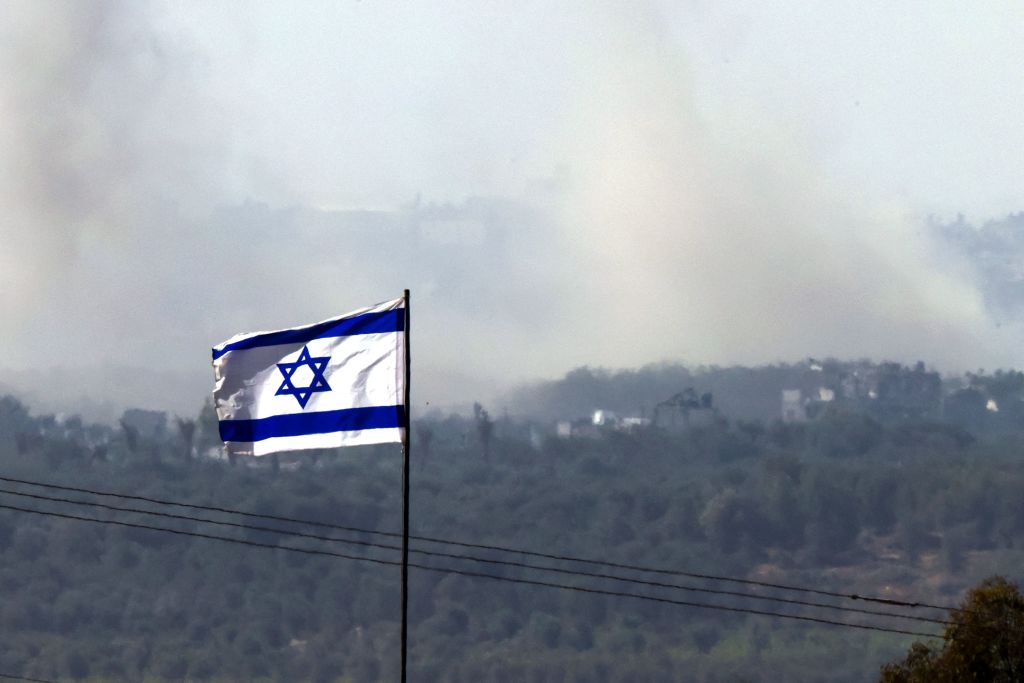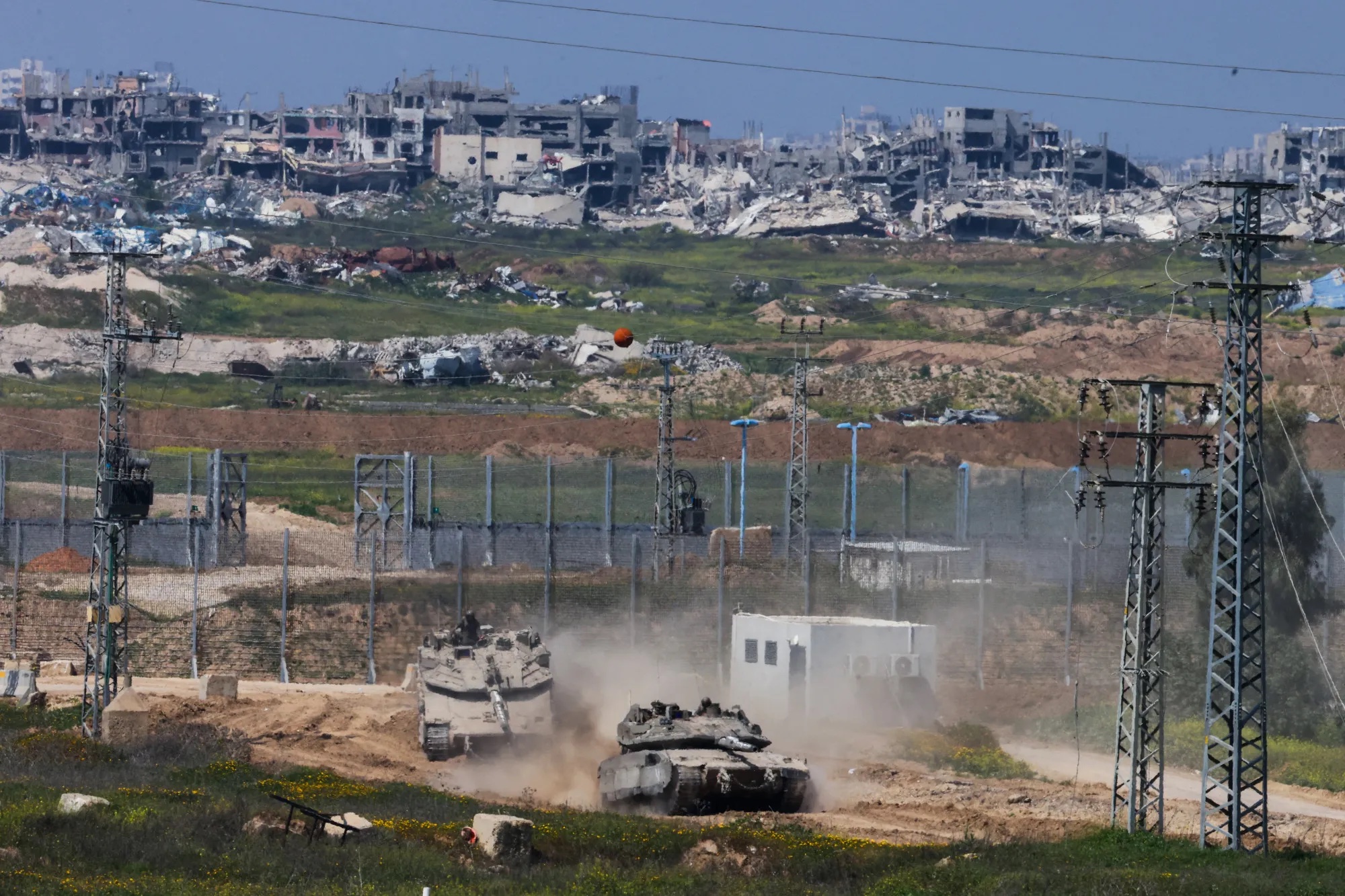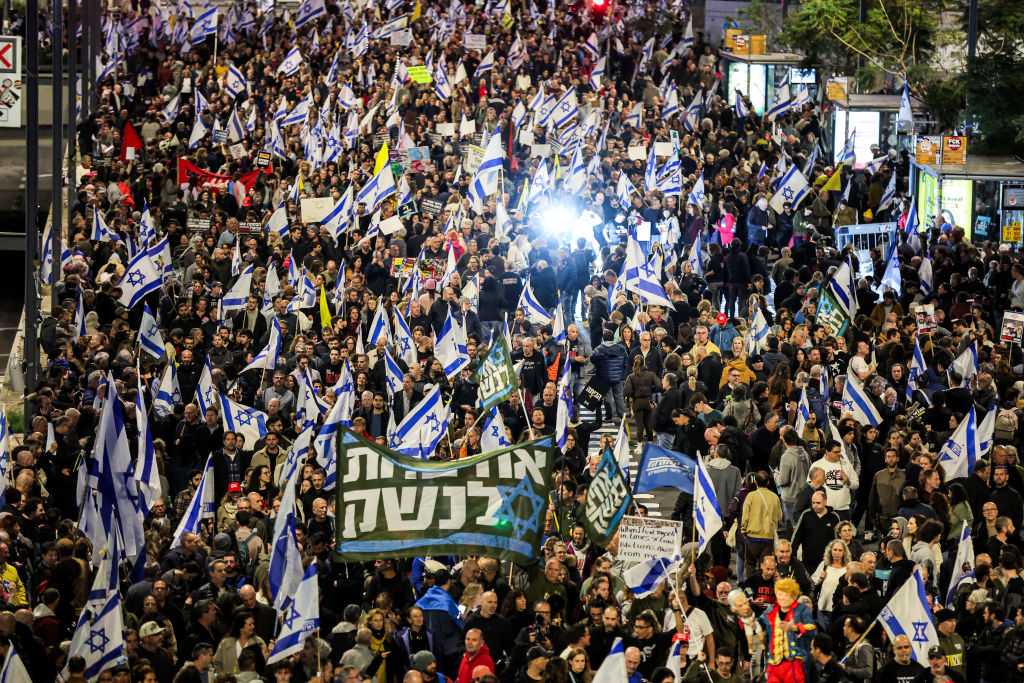Professor Alan Dershowitz is one of Israel’s most prominent defenders outside the Jewish state. He has just written — in record time — a book about the events of October 7: War Against the Jews — How to End Hamas Barbarism. It will be published next month and will argue, among other things, that the Hamas attack “has required Israel to consider its nuclear option as a last resort to assure its survival.” I spoke to Professor Dershowitz and asked him first, about another of the book’s arguments, that there should be no absolute distinction between civilians and combatants in Gaza, but instead “a continuum of civilianality.”
“It existed in Nazi Germany,” he said. “There were the SS troops; there were soldiers drafted into the German army; people who enthusiastically went to the Nuremberg rallies and screamed ‘Kill the Jews’; those who disclosed the hiding places of Jews; those who refused to help Jews. The same thing is true in Gaza. The most civilian, obviously, are young children. The most non-civilian are the terrorists. In the middle, there’s a wide range: people who allow their homes to be used to store rockets, people who helped in the coup to overthrow the Palestinian Authority, those who voted for Hamas.
“I want to emphasize that this is a conceptual framework. It’s theoretical,” he continued. “I’m not suggesting that this is an operational criteria, so that decisions can actually be made on the basis of this continuum, only that it exists. Every government should always err on the side of regarding somebody as on the civilian end of the continuum, unless there’s evidence to the contrary. “
Some time ago, I interviewed a Palestinian woman who had volunteered to be an Islamic Jihad suicide bomber and she said she could happily kill Israeli children because they would grow up to be soldiers — that every Jew in Israel, young or old, was a settler on Palestinian land. I asked Dershowitz, aren’t your arguments like hers?
“The idea that a child will grow up to be a soldier is simply an absurd argument,” he replied. “It would mean there are no such things as civilians. A three-year-old, in my continuum, is completely a civilian, until they grow up to be a terrorist. If he’s fifteen, as a terrorist, he’s an adult. If you’re old enough to kill a Jew, you’re old enough to be killed by a Jew. You can’t hide behind being a child when Hamas uses child soldiers. They do it all the time, they do it to take advantage of Israeli law, because Israeli law does treat children below a certain age somewhat differently… There’s a sensible continuum of civilianality, and there’s a nonsensical one, the one that says every Jew is a settler.”
Hamas told me it was right to kill the people at the concert in the desert because Israel is a mobilized society and there were a lot of reservists there.
“Remember that many people at the festival are peaceniks, very much opposed to Israel’s policy in Gaza and in the West Bank. And they are not living in the settlements,” Dershowitz pointed out. “Some are descendants of people who have lived in what was called Eretz Israel since before the birth of Mohammed. In 1840, they did the first demographic survey of Jerusalem and the vast majority of people were Jewish… Reservists are a close question. There’s nothing clear in the law about whether a reservist who is a civilian is a target. The answer is almost certainly no. When you have a war like this, the rules are very much in flux. Morality has a role to play.”
A Palestinian official once told me that what the Holocaust meant to him was that a Polish Jew was living in his grandmother’s house, in what is now Israel. People in Gaza look through the fence at land that used to belong to their parents and grandparents. Moshe Dayan, Israel’s most celebrated soldier, gave a famous speech in 1956, a eulogy for a young Israeli killed at the Nahal Oz kibbutz (the site of one of the October 7 massacres). He said: “Why should we complain of their hatred for us?… they sit in the refugee camps of Gaza, and see, with their own eyes, how we have made a homeland of the soil and the villages where they and their forebears once dwelt.”
“I know the speech. Dayan wasn’t always right,” Dershowitz replied. “If the Arab leaders in 1948 had accepted the UN partition, there would have been no refugee problem to speak of. It was completely the fault of the Arab leadership. The refugee problem was caused twice, in ’48 and ’67, both wars initiated by the Arabs, wars of destruction against the Jews… Hundreds of thousands of Pakistanis and Indians look across their border and say, ‘You see that house, that’s the house my grandmother used to live in.’ In areas of the Czech Republic [Germans can say], ‘This is a home that my grandparents used to live in.’ Every Sephardic Jew could point to a house in Morocco or Algeria and say, ‘That’s where my grandparents lived, and now some Arab is living there.’ So it’s just three on a scale of ten. It’s not a nine, it’s not an eight. It’s not a justification for killing.”
But Dayan’s point — one of them — was that the Palestinians of Gaza resent Israelis, and maybe they have reason to, I responded.
“The Palestinians have been fed resentment. I would feel resentment too if my own people didn’t accept me,” Dershowitz said. “Remember when this transfer of population occurred? The Jews of North Africa were welcomed to Israel, whereas the Arabs were put into refugee camps… Why are the refugee camps in Gaza? It’s only just to breed resentment, so that people can look across the border and say, ‘That was my grandmother’s house.’”
So, I asked, the Palestinians have to accept what happened in ’48?
“’48 didn’t ‘happen.’ ’48 was a decision made by the Arab leadership to invade Israel,” Dershowitz replied. “Every time Israel was invaded, they got more land… Kaliningrad was a completely German town and now it is 100 percent Russian. That was the result of Germany invading Russia. When you invade people, you lose territory, and when you lose territory, you create refugees. There has to be a statute of limitations on this kind of thing: 1948? We’re talking seventy-five years. Get over it! I’m not saying get over it when it comes to people dying, [just] when it comes to exchanges of population.
“And turn to your real enemies; the real enemies in Gaza are Hamas… Gaza could have been a beautiful place, Singapore on the Mediterranean. But instead of using the money [from international aid] to feed and educate their children, they use it to build tunnels and build rockets. It’s hard to blame Israel for that.”
Professor Paul Walzer, the theorist of armed conflict, says Israel should wage a war of justice, not vengeance.
“I completely disagree with those Israeli right-wingers talking about ‘animals,’” Dershowitz said. “That’s improper talk for anybody, certainly for anybody in the government… but there’s no comparison to what Hamas says about Israel. Shakespeare said, in The Merchant of Venice, ‘If you wrong us, shall we not revenge?’ Revenge is an important element of human feelings. But I think the military really makes some decisions here. They’re thinking about how to prevent a recurrence of this. That’s the motivating, dominating consideration. If the rules are that you never hit a target if there are civilians, the United States and Great Britain would not have won World War Two. Dresden, Hiroshima, Nagasaki, Berlin, Tokyo: Roosevelt and Churchill said we will stop at nothing to win.
“Many more civilian casualties existed in the Afghan war and the Iraq war [than in Israel’s wars]. Israel has had fewer civilian casualties than any country in modern history waging comparable wars. That’s a statistic that cannot be disputed. Let me give you one more statistic. The Israeli military announced that one in five rockets fired from Gaza misfires and lands there. One in five. More than a thousand. Every time somebody’s killed by a Hamas rocket, it is blamed on Israel. Israel did not target the [al-Ahli] hospital. And yet that’s the blood libel that’s been circulating throughout the Arab press, and even in many parts of the Western world: that Israel targeted the hospital deliberately to kill civilians.”
You could deliberately choose targets for bombing that stay within the letter of international law, while killing many civilians. A senior retired Israeli general said you should put pressure on the whole population of Gaza to get the hostages released. I read that the Israeli army has loosened its rules of engagement to fight in Gaza. I asked Dershowitz: how far should Israel go to win? How much blood should be shed?
“Remember, the blood that will be shed will be both Israeli and Palestinian. The hostages are in danger; Israeli soldiers are in danger. These are impossible calculations,” he replied. “The one thing Israel shouldn’t do is accept the phony morality of the United Nations or Amnesty International. Amnesty International’s branch at Harvard blamed October 7 on Israel. So Israel should not accept the double-standard fake morality of outsiders. It should impose its own morality together with its allies, the United States and Great Britain, and come to a balanced, reasonable conclusion. Israel should never ever, under any circumstances target a civilian. That’s a clear rule.”
You could argue that Israel killing one civilian to take out one Hamas fighter is proportionate, but what about thirty civilians? Or 300?
“You never bomb a hospital, and that’s why Hamas uses hospitals,” Dershowitz responded. “You do bomb mosques, though, because mosques are used as ammunition depots. You try to avoid as many civilian deaths as possible. If it’s the [military] head of Hamas, if it’ s the man who’s planning all these bombs, the number could be thirty, forty, fifty, if not 100, if not 1,000. Proportionality merely means that if you have a legitimate military target — and getting rid of Hamas is legitimate — the value of the target must exceed the cost to the civilians. That is a balance must be struck and struck, in the first instance, by the country making the decision. Remember too the use of human shields. If I hold up a bank and grab a hostage, and a policeman takes aim at me but accidentally kills the hostage, it’s the hostage taker who’s guilty of the murder. That’s true in international law as well.”
Dershowitz says in his new book that the Hamas attack — perhaps sponsored by Iran — means Israel will ultimately have to “consider its nuclear option.”
“If Israel’s very existence is seriously endangered by an Iranian nuclear arsenal it will, as a last resort, likely act preventively or reactively with all weapons at its disposal,” he told me.


























Leave a Reply